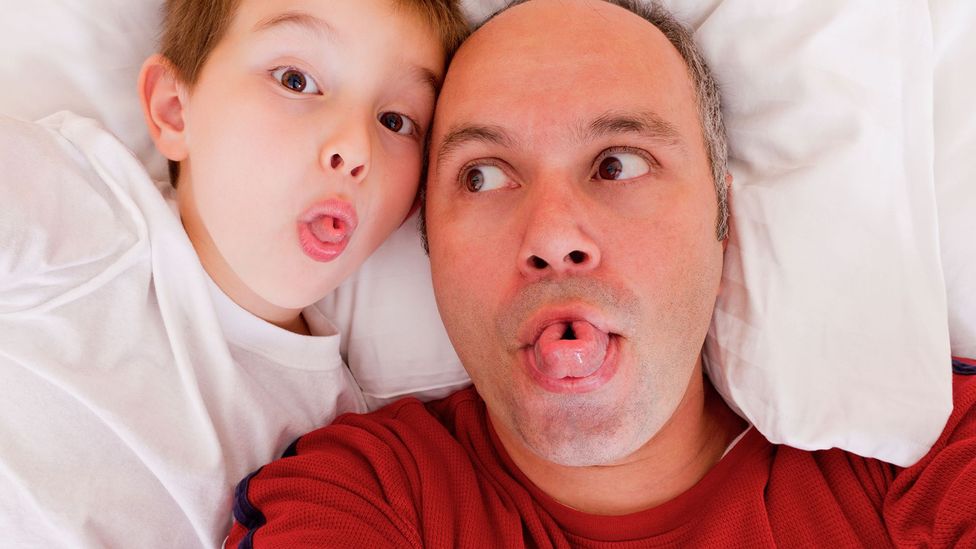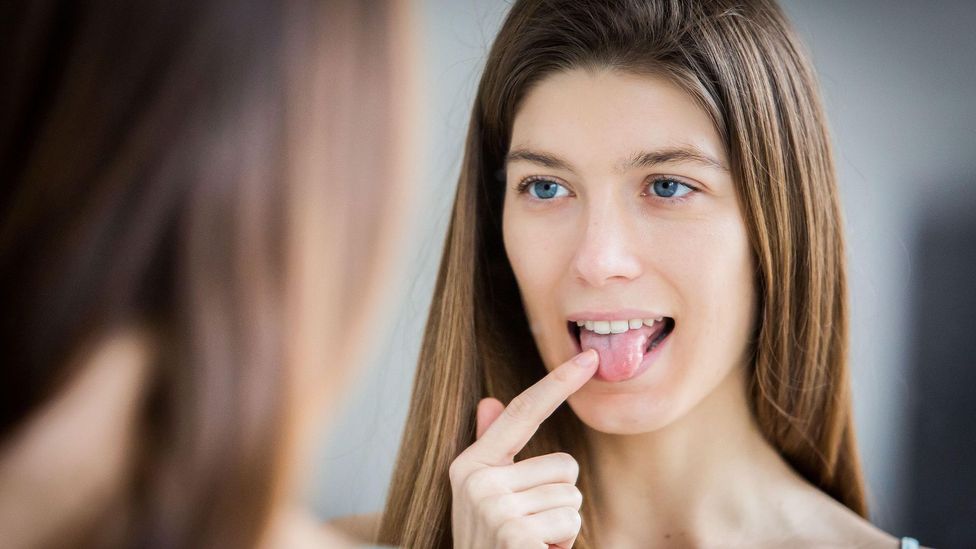Feel Like Something Stuck on Back of My Tongue
Do you inherit the ability to roll your tongue?

It's long been thought that the ability to roll your tongue is a clear-cut case of genetics. BBC Future finds it's not that simple.
S
Stand in front of a mirror, open your mouth slightly and try to bring the sides of your tongue up towards each other to make a U-shape. If you can do it you are a tongue-roller, along with between 65 and 81% of people, more of them women than men.
If you tried this before, the chances are it was in a biology lesson on genetics at school. I remember sitting on my high stool at the lab bench trying in vain to roll my tongue, while my friends seemed to be able to do it effortlessly. The reason we couldn't all do it, we were told, is because it is a simple genetic trait. You had either inherited the right variant of the tongue-rolling gene or you hadn't. And if you hadn't, you would never be able to do it.
Determined not to beaten at this admittedly pointless skill, I spent idle moments practising. To my surprise, eventually, I could do it. This puzzled me, as a genetically-inherited capability is not something you should be able to learn to do. The reason I could, is that the simple inheritance notion of tongue-rolling is a myth. Still, even today, you can find this theory in biology textbooks.
- Are white teeth any healthier?
- Three myths about pregnancy
- The biggest myths about bad breath
It was the leading geneticist Alfred Sturtevant who suggested back in 1940 that tongue-rolling was a Mendelian trait, meaning that it was inherited not as a blend of your parents' genes, but from one of your parents. Eye colour, skin tone and the presence of freckles are thought to work in this way (although we now know that these too can be affected by variants of other genes too).
He noted that a few children refused to open their mouths to reveal whether or not they could do it. He guessed they couldn't. From those who were prepared to reveal their tongues, he found four who could roll their tongues despite the fact that none of their parents could. Nonetheless he concluded that tongue rolling was conditioned, at least in part, by heredity.

You can, it seems, teach yourself to roll your tongue - though it can require hours of practice (Credit: Alamy)
If this is correct, then identical twins, since they are genetically identical, should either both be tongue rollers or neither of them should be able to do it. But in a study from the 1950s of 33 twins, seven sets didn't match up, comprising one roller and one non-roller.
To Alfred Sturtevant's credit, on seeing this research, he declared in his book in 1965 that tongue rolling wasn't a Mendelian case after all and that he was "embarrassed to see it listed" as such. But that hasn't stopped the myth being taught and perpetuated in many schools today.
To complicate matters further, some people can't in fact be classified as rollers or non-rollers because they can curl the sides of their tongue up slightly, without being able to make the full U.
You could argue that tongue-rolling doesn't matter. It's not exactly a useful skill. But its insignificance is precisely the reason it makes an interesting topic for genetic studies. It's not something that most people practice or even discuss, so, when studying it, you can limit the environmental influences affecting it. And after decades of investigation, what do we know? Well, it is likely that there is some genetic element, but not one that is straightforward. Instead it might involve multiple genes or variants of genes.
And it seems I'm not alone in learning through practice. When John McDonald, from the University of Delaware's Department of Biological Sciences, asked 33 non-roller students to practise tongue-rolling each day, after a month one extra person could do it. Admittedly that's not many. But maybe other people have succeeded too. If you have taught yourself to roll your tongue, I'd be interested to hear about it.
Twitter: @claudiahammond
Disclaimer
All content within this column is provided for general information only, and should not be treated as a substitute for the medical advice of your own doctor or any other health care professional. The BBC is not responsible or liable for any diagnosis made by a user based on the content of this site. The BBC is not liable for the contents of any external internet sites listed, nor does it endorse any commercial product or service mentioned or advised on any of the sites. Always consult your own GP if you're in any way concerned about your health.
Join 800,000+ Future fans by liking us on Facebook , or follow us on Twitter .
If you liked this story, sign up for the weekly bbc.com features newsletter , called "If You Only Read 6 Things This Week". A handpicked selection of stories from BBC Future, Earth, Culture, Capital, and Travel, delivered to your inbox every Friday.
Feel Like Something Stuck on Back of My Tongue
Source: https://www.bbc.com/future/article/20180130-do-you-inherit-the-ability-to-roll-your-tongue
0 Response to "Feel Like Something Stuck on Back of My Tongue"
Post a Comment